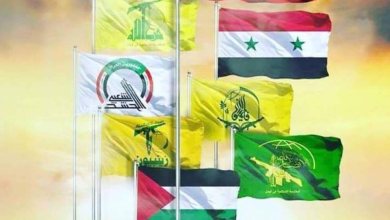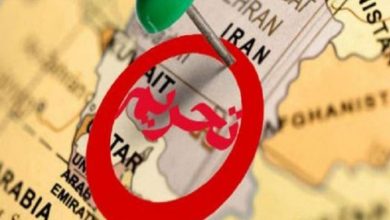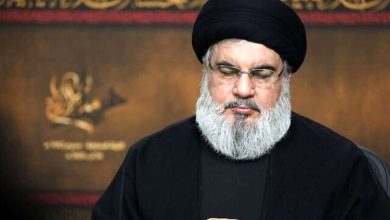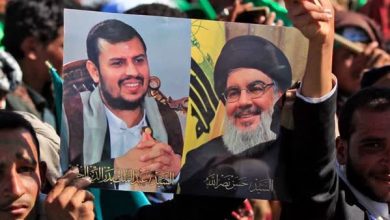Thomas Brack Flips the Table: Is Peace in the Middle East Just an Illusion?
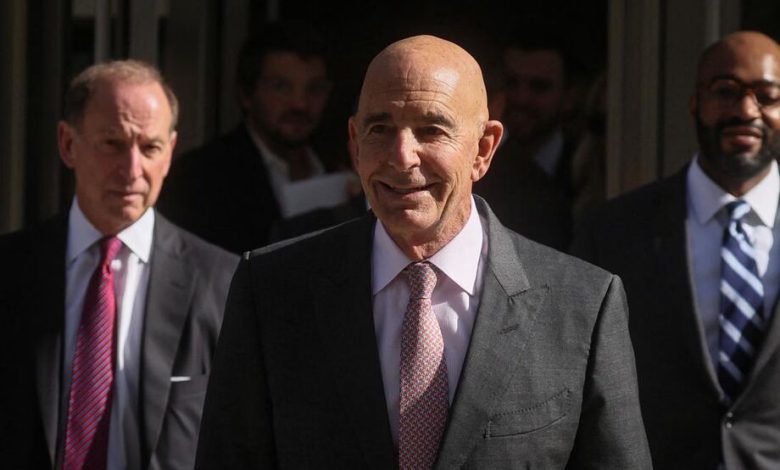
 Hawraa al Massri:
Hawraa al Massri:
While the major powers seek to revive the so-called stalled peace process, U.S. envoy Thomas Brack made a statement that shook political circles. This was not his first controversial statement, as his remarks have frequently topped the list of the most provocative. From insulting Lebanese journalists at Baabda Palace to his latest comments on Sky News’ The Truth program with Hadley Gamble on the 22nd of this month, he described peace in the Middle East as nothing but an illusion. He also dismissed the efforts of some members of the UN Security Council to recognize the State of Palestine as “pointless.”
All of these statements sparked widespread controversy in the Middle East, especially amid regional tensions. Could Brack’s words really reflect the U.S. government, which has long used the banner of peace to justify its interventions? What is the story behind these statements?
“A Complex Background”
Since the establishment of the Zionist entity, the Middle East has witnessed chronic instability. The conflict between the Zionist entity and the Arab world over Palestine continues to expand rather than diminish. The Zionist entity continues to commit massacres against Gazans, while internal Palestinian divisions widen, settlement activity grows, and the occupation works to forcibly relocate Gaza’s residents to neighboring countries such as Egypt and Jordan.
In Lebanon, the situation is even more complex and opaque. Lebanese politics face regional and international pressure regarding Hezbollah’s weapons, exacerbating internal unrest and divisions, alongside the economic collapse that has become a normalized part of daily life.
The issue is not limited to Palestine and Lebanon. Syria today suffers from political deadlock, with the arena still open to external interventions, such as from Israel, which seeks to impose control over Syria and secure its borders. This is the reality of the Arab region today.
The international community has not been absent from these events. The United Nations continues to call for negotiations over Gaza, while some Arab states proceed with agreements such as the Abraham Accords. Amid this contradiction, Thomas Brack, the U.S. special envoy under the Trump administration for the Middle East—particularly Lebanon and Syria—emerged. Known for his diplomacy and calm demeanor, his recent statements completely overturned this perception, revealing his aggressive stance. In his latest remarks, he strongly asserted that no Arab state deserves absolute trust, and, most notably, that recognizing the State of Palestine is not useful. These statements sparked wide debate and raised questions: What is the real U.S. position on regional issues?
Thomas Brack and Controversial Statements
Since assuming his role as U.S. envoy for the Trump administration’s Middle East portfolio—especially regarding Lebanon and Syria—Brack has drawn attention in a controversial manner through his comments on Lebanon, Syria, and their governments. Yet, the most striking of these statements is that peace is merely an illusion.
Brack: Peace is an Illusion!
During his appearance with Hadley Gamble on Sky News’ The Truth, Brack was asked about the expected outcome of the Palestinian issue. Initially showing some surprise, he candidly admitted that he did not know where things were headed but stunned the audience by saying that suggesting peace would resolve the issue is an illusion. He argued that peace does not exist, citing legitimacy as a cover: both Israel and the Palestinians possess this legitimacy, which drives them to defend it. This statement shocked Gamble, who was astonished and puzzled that such words came from someone representing the U.S. administration, which has historically sought to stabilize peace between Israel and regional states.
Brack did not stop at calling peace an illusion; he also criticized European efforts to recognize Palestine, describing them as “pointless” actions that change nothing on the ground. The Zionist entity continues to impose daily realities: settlements and internal Palestinian divisions hinder the creation of a viable state.
Regarding Lebanon, his statements were highly shocking. He asserted that the Lebanese state cannot control Hezbollah, that internal divisions are deep, and that economic crises dominate Lebanon, delaying the formation of an effective state. He also noted that the U.S. would not arm the Lebanese army to fight Israel, but could provide assistance to confront Hezbollah, explicitly labeling Iran and Hezbollah as “snakes.” His bias against Lebanon was clear, showing visible hostility toward the resistance and sending subtle messages to the Lebanese government regarding Hezbollah’s weapons.
On the Syrian crisis, Brack openly stated that he sees no near-term solutions or international entanglements, pointing out that the matter is dependent on understandings between Washington, Tehran, Moscow, and Ankara, which remain uncertain and face obstacles.
These sharp statements prompted analysts to examine the matter from multiple dimensions—diplomatic, political, and regional—to determine whether Brack’s statements represented the U.S. government or merely his personal views.
Brack’s Statements: Between Analysis and Impact
From the moment these contentious remarks appeared, analysts began studying them from various angles to understand whether Brack spoke on behalf of the Trump administration or expressed personal opinions.
The Political Dimension
The U.S. administration has traditionally maintained a measured tone in its statements to protect its regional interests, often relying on maneuvering and duplicity. It has presented itself as a major power striving to preserve peace among states, intervening under the pretense of humanitarian support and protecting regional and international security from collapse—as seen in Iraq, under the guise of combating ISIS, which it had initially supported.
Brack’s boldness, however, left some analysts puzzled, questioning whether this indicates a new direction for the U.S. government. Some analysts suggested it may be Brack testing regional and international reactions, particularly regarding peace and recognition of Palestine.
These statements negatively affect diplomatic efforts, potentially weakening Arab and international initiatives supporting a two-state solution or normalization, as they delegitimize negotiations for any meaningful progress. When a U.S. official overseeing the Middle East asserts that peace is an illusion, it undermines negotiations with Israel and certain Arab states.
Regionally, the statements are interpreted differently across Ramallah, Gaza, and Beirut. In Ramallah, they are a slap to the Palestinian Authority, which has historically valued U.S. and European support. In Gaza, they bolster the resistance narrative, emphasizing the futility of negotiations with the U.S., which seeks only chaos and destruction.
In Beirut and Damascus, the statements are seen as a presentation of reality, highlighting the inability of the Syrian and Lebanese states to act. They may also be interpreted as a veiled threat to Lebanon, particularly regarding his comments about not arming the Lebanese army against Israel.
Overall, these statements, marked by aggressiveness and a condescending view of the region, have eroded hope for peace and stability while reinforcing the idea that international justice is mere rhetoric. However, they also reveal a certain realism, exposing that the U.S. does not seek peace and stability but supports actions by the occupation under the guise of legitimacy. The pressing question remains: how have regional and international actors reacted?
Statements and Regional/International Reactions
Since Brack’s shocking remarks, the most important aspect has been the reactions. How did Beirut, Damascus, and Ramallah receive these words? Will regional initiatives change, or will the remarks merely be condemned?
In Beirut, the statement was rejected, especially by Nabih Berri, who sharply opposed Brack’s assessment of the Lebanese army, saying:
“The American envoy Thomas Brack’s description is unacceptable in form and substance and contradicts previous statements.”
Meanwhile, Lebanese Prime Minister Nawaf Salam responded more calmly, expressing his surprise at the remarks.
Palestine has not yet issued an official response, though criticism is expected. Israel, however, may interpret Brack’s words as genuine support for its belief that the Palestinian issue can only be resolved through domination and suppression. Peace, according to this view, is impossible in the Middle East, and Brack’s remarks could motivate Israel to continue its massacres in Gaza.
The international community may see this as reinforcement for adhering to the two-state solution and recognizing Palestine.
Responses varied between governments and political entities versus public opinion. Social media erupted with hashtags condemning Brack’s remarks, while political analysts treated the statements as a warning for the countries mentioned to exercise caution, potentially triggering defensive measures or strong denunciation. Analyst Faisal Abdul Sattar explicitly stated that any leniency regarding these statements will be met with higher-level remarks. He emphasized that the American discourse is not merely diplomatic messaging but part of a strategy to create tension and internal instability.
Ultimately, all of Thomas Brack’s statements revealed that the U.S. has never played a truly peaceful role in promoting democracy. The subtle messages conveyed through these controversial statements became unmistakably clear.
Expressing reality in a way that strips the region of hope elicited varied reactions: some were surprised, others outright rejected the words, and some remained silent, issuing no immediate response.
The underlying truth is that the road ahead may be long and fraught with challenges, but history has proven that crises, no matter how prolonged, are not predestined.



